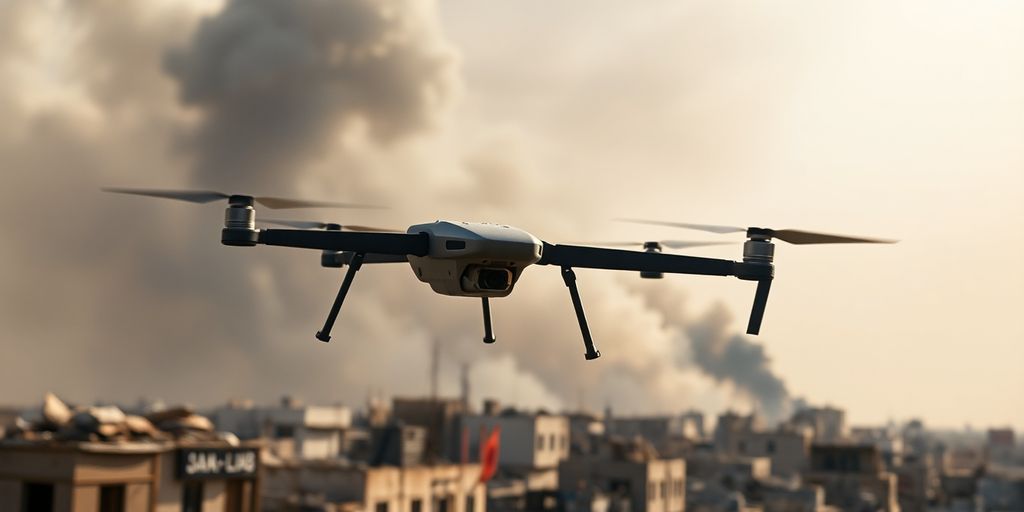In the ongoing conflict in Gaza, Israel has rapidly deployed advanced artificial intelligence (A.I.) technologies to enhance military operations. While these innovations have provided tactical advantages, they have also raised significant ethical concerns, particularly regarding civilian casualties and the implications of increased surveillance.
Key Takeaways
- Israel has integrated A.I. into military operations, leading to both successes and failures.
- The use of A.I. tools has resulted in civilian casualties, raising ethical questions.
- Collaboration between military personnel and tech industry experts has accelerated A.I. development.
A.I. Technologies in Military Operations
Since the onset of the conflict, Israel has utilized various A.I. technologies to improve its military capabilities. Some notable applications include:
- A.I.-Backed Audio Tools: Used to intercept communications and locate targets, such as Hamas commander Ibrahim Biari, whose assassination led to over 125 civilian deaths.
- Facial Recognition Software: Employed to identify individuals at checkpoints, though it has resulted in wrongful arrests due to misidentifications.
- Data Analysis Algorithms: Tools like the machine-learning algorithm "Lavender" have been used to predict potential militants based on existing data.
The Role of Unit 8200
Israel’s military intelligence unit, Unit 8200, has played a crucial role in the development and deployment of these A.I. technologies. Collaborating with reservists from major tech companies, they established an innovation hub known as "The Studio" to facilitate rapid advancements in military A.I. applications.
Ethical Implications of A.I. Deployment
The swift integration of A.I. into military operations has not come without consequences. Key ethical concerns include:
- Civilian Casualties: The use of A.I. tools has led to significant civilian deaths, prompting debates about the morality of such technologies in warfare.
- Surveillance and Privacy: Increased surveillance capabilities raise questions about the balance between security and individual rights.
- Decision-Making: Experts emphasize the need for human oversight in A.I. decision-making processes to prevent unintended consequences.
Future of A.I. in Warfare
Israel’s aggressive experimentation with A.I. in real-time combat scenarios may set a precedent for future conflicts. As military operations increasingly rely on technology, the potential for misuse and ethical dilemmas will likely grow. Experts warn that without proper checks and balances, the consequences could be dire.
Conclusion
As Israel continues to navigate the complexities of modern warfare, the integration of A.I. technologies presents both opportunities and challenges. The ongoing conflict in Gaza serves as a critical case study for the ethical implications of using advanced technologies in military operations, highlighting the urgent need for responsible practices in the age of A.I.
Sources
- Israel’s A.I. Experiments in Gaza War Raise Ethical Concerns, The New York Times.

Founder Dinis Guarda
IntelligentHQ Your New Business Network.
IntelligentHQ is a Business network and an expert source for finance, capital markets and intelligence for thousands of global business professionals, startups, and companies.
We exist at the point of intersection between technology, social media, finance and innovation.
IntelligentHQ leverages innovation and scale of social digital technology, analytics, news, and distribution to create an unparalleled, full digital medium and social business networks spectrum.
IntelligentHQ is working hard, to become a trusted, and indispensable source of business news and analytics, within financial services and its associated supply chains and ecosystems











